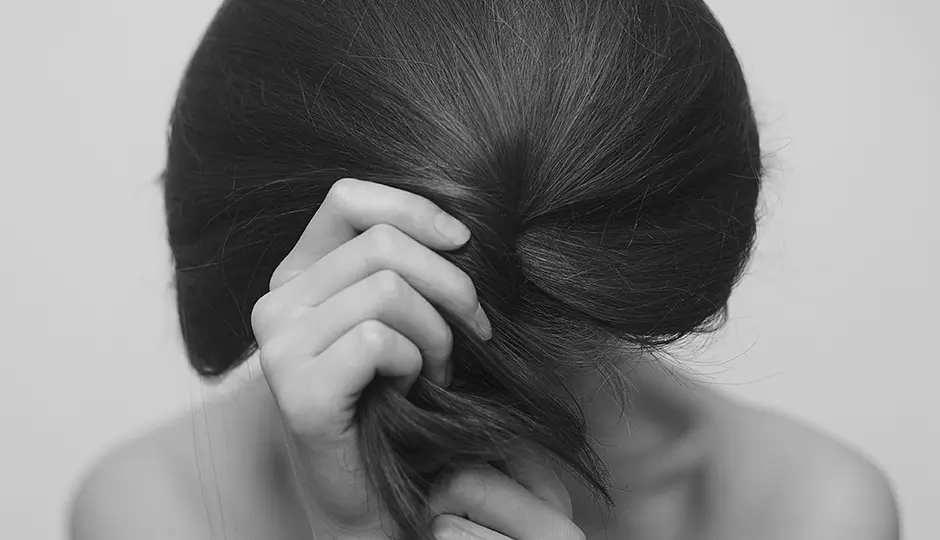September is Trichotillomania Awareness month, making it the perfect time for us to help shed some light on this common yet frequently misunderstood type of alopecia. While little is known about trichotillomania, the condition affects about two to four percent of the population or two to ten million Americans.
What Is Trichotillomania?
Trichotillomania, also commonly referred to as hair-pulling disorder, is a mental disorder that causes people to pull out their own hair. Trichotillomania is a form of alopecia characterized by the recurrent, irresistible urge to pull hair out of the scalp or other areas of the body.
For some people, trichotillomania is mild and manageable, while others find the compulsive urge to pull hair overwhelming. Compulsive hair pulling from the scalp often leads to patches of hair loss or bald spots. In addition, the condition can cause significant stress and interfere with a person's social or work functioning.
Trichotillomania is a complex mental disorder, and people often go to great lengths to disguise the loss of hair and hide their condition.
The condition affects men and women of all ages and backgrounds, usually develops between 10 and 13 years of age, and is often a lifelong problem. Trichotillomania is more common among people with obsessive-compulsive disorder (OCD) and post-traumatic stress disorder (PTSD).
Causes of Trichotillomania
Like many other complex mental disorders, the cause of trichotillomania is unclear, but researchers believe it involves both genetic and environmental factors. Often people with trichotillomania also bite their nails, chew their lips, or pick their skin. Sometimes people find relief by pulling hair from dolls or threads from materials such as clothing or blankets.
Hair pulling can be focused or automatic. Focused hair pulling is intentional, relieves stress or tension, and may involve elaborate rituals, such as choosing the exact hair. Automatic hair pulling often occurs without the person knowing and can happen when they're bored, watching TV, or reading. Depending on the situation, the same person may experience both focused and automatic hair pulling.
Trichotillomania seems to be related to emotions. For some people with trichotillomania, hair pulling is a response to negative or uncomfortable feelings, such as stress, tension, boredom, loneliness, or fatigue. However, hair pulling may also provide positive emotions such as satisfaction or relief after pulling out hair, causing people to continue pulling out hair to maintain these positive feelings.
Symptoms of Trichotillomania
Trichotillomania is a chronic disorder, and the severity of symptoms may vary over time. For some people, symptoms can come and go for weeks, months, or even years, but the issue rarely ends within a few years of starting.
Symptoms of trichotillomania may include:
- Repeatedly pulling hair from your scalp or other body areas.
- A sense of tension before pulling or when trying to resist the urge.
- Pleasure or relief after removing the hair.
- Noticeable hair loss, such as thin or bald areas on the scalp.
- Elaborate rituals that accompany hair pulling.
- Rubbing pulled-out hair across the face and lips or biting, chewing, or eating pulled hair.
- Repeated attempts to stop the compulsive behavior, often without success.
- Avoiding work, school, or social situations due to hair loss.
Trichotillomania Awareness
Trichotillomania is a common condition in the same spectrum as OCD, but it is different. OCD compulsions are repetitive acts or behaviors in response to a specific obsession. In contrast, trichotillomania may be obsessive but may also be soothing. OCD is usually associated with negative emotions and distress, while people with hair-pulling disorder experience pleasure or relief from their actions.
At New Image Hair Clinic, we understand trichotillomania and the feelings associated with it. If not treated, the condition may permanently damage the hair follicles, leaving them unable to grow hair. Dealing with any type of hair loss can be distressing, and our compassionate, understanding team of professionals is here to help. Contact us today to learn more about trichotillomania and schedule your FREE initial consultation.



